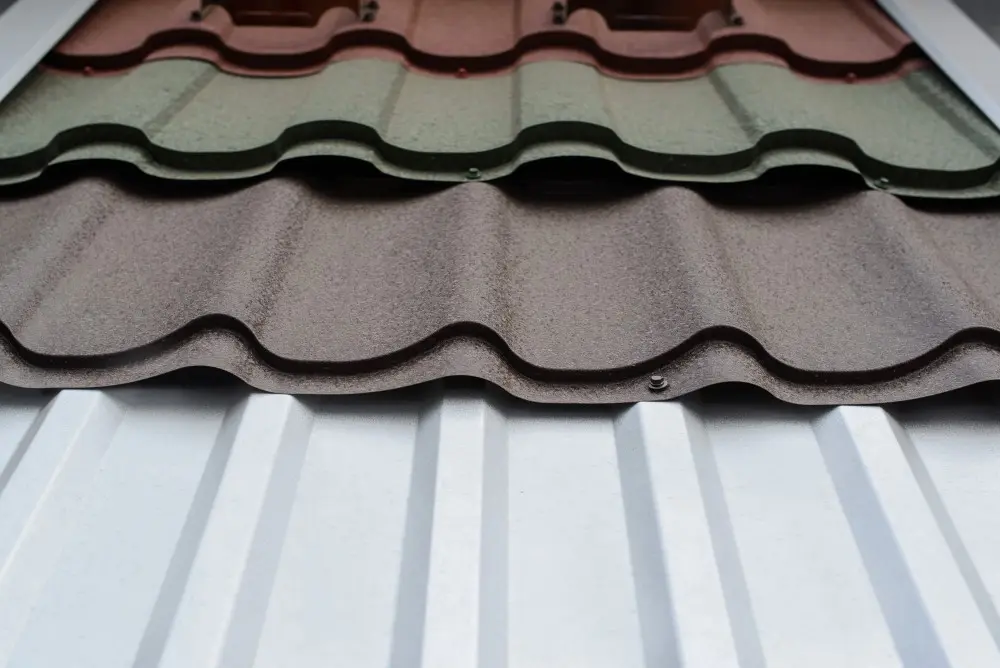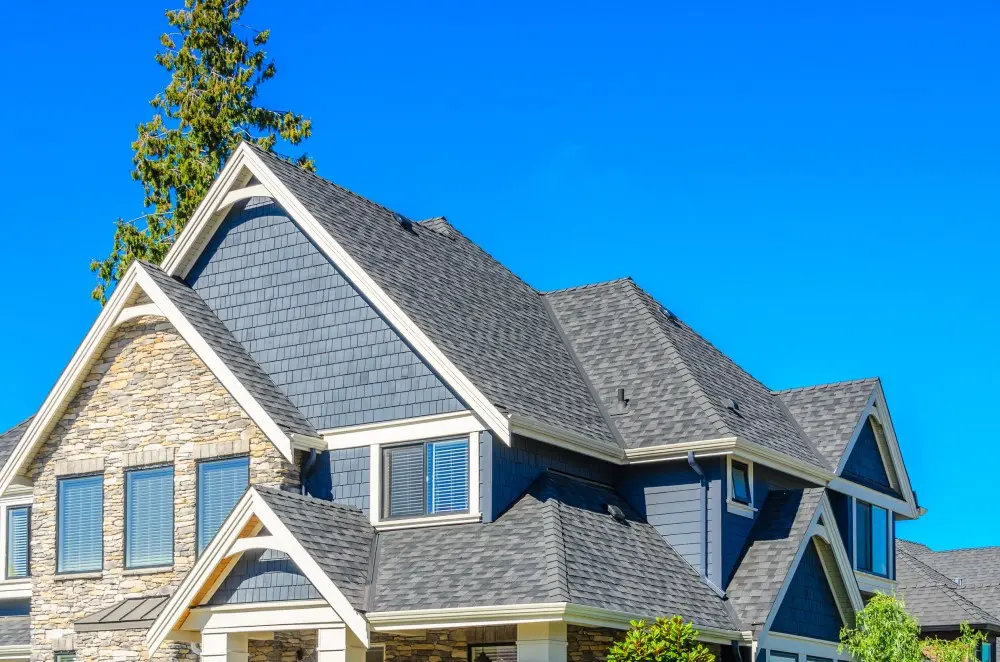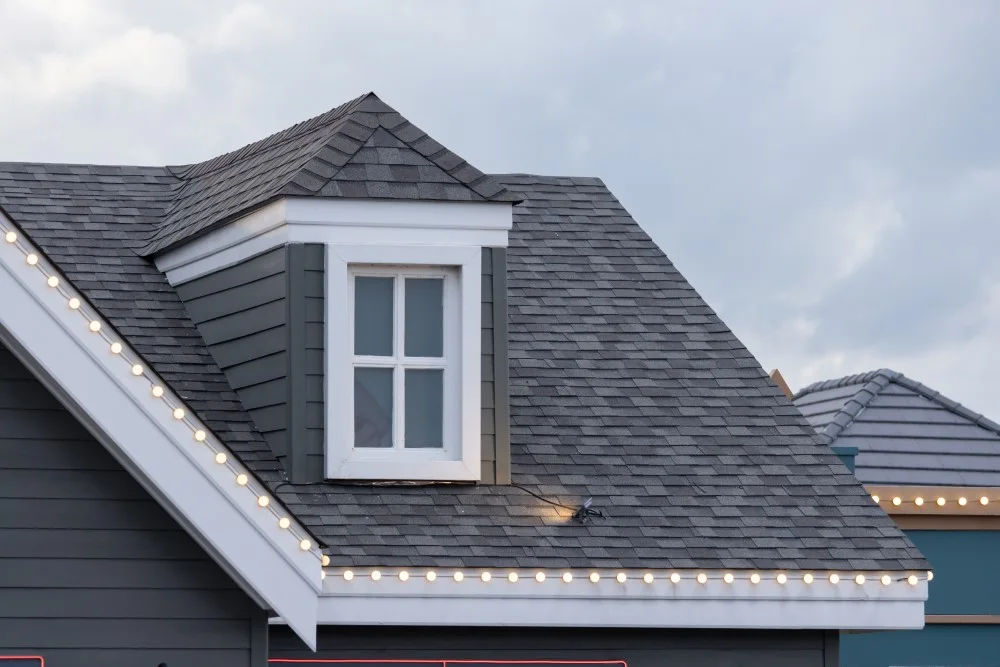In reality, the commercial roofing industry in Middle Tennessee sees its share of subpar contractors, especially after storm damage events. Property managers and building owners face higher stakes than residential projects: larger budgets, complex systems, stricter safety requirements, and the need to minimize operational disruption. When you understand how to evaluate contractors properly, you can avoid costly mistakes and unnecessary headaches. Here’s what the team at Quality Exteriors wants you to know.
Why Choosing the Right Roofing Contractor Matters
The roofing contractor you select will ultimately be responsible for protecting one of your most valuable assets. Commercial properties typically feature flat or low-slope roofing systems that need specialized knowledge different from residential work. Your choice determines not just the quality of installation but the long-term performance of your roofing system, offering significant benefits.
Poor contractor selection creates serious consequences:
- Premature roof failure: Improper installation voids the manufacturer's warranty information and shortens the expected lifespan of roofing materials, forcing early replacement.
- Safety incidents: Contractors without proper insurance or safety protocols expose you to significant liability if accidents occur on your property.
- Operational disruption: Inexperienced contractors fail to coordinate work around business activities, causing unnecessary tenant complaints and lost productivity.
- Cost overruns: Vague contracts and a lack of transparency lead to disputes over additional charges and hidden fees that weren't part of the original estimate.
- Long-term maintenance problems: Poor workmanship creates recurring leaks and repairs that cost far more than the initial savings from choosing a low bidder.
Don’t rush into this decision! When you take the time to evaluate contractors thoroughly, you can protect your business interests, property values, and professional reputation. The right commercial roofer brings expertise, proper credentials, and commitment to quality that pays dividends for decades.
Tips for Choosing a Commercial Roofing Contractor
Finding the right professional roofer requires looking beyond price quotes and marketing promises. We’ve outlined how to identify contractors worthy of your consideration.

1. Verify State Licensing and Registration
Every legitimate contractor must carry proper licensing for commercial work. In most states, commercial roofing services require specific contractor licenses that verify education and experience. You can check credentials through your state licensing board to confirm they're current and in good standing.
2. Confirm Comprehensive Insurance Coverage
Request proof of general liability insurance (at least $2 million for commercial properties), workers' compensation insurance, and commercial auto insurance. To be even more thorough, verify certificates directly with insurance carriers, not just with the contractor. This step prevents devastating financial exposure if accidents occur on your property.
Pro tip: Never accept expired insurance certificates or verbal assurances about coverage. Call the insurance carrier directly to verify current policy status and coverage limits before signing any contract.
3. Check Manufacturer Certifications
Major roofing material manufacturers like GAF, Carlisle, and Firestone certify contractors who meet quality standards. Certified installers receive specialized training, maintain strong safety records, and often provide access to enhanced warranty options. At Quality Exteriors, our GAF Master Elite® and GAF President's Club status reflects our commitment to the highest standards in the commercial roofing industry.
4. Evaluate Experience with Your Roof Type

Commercial roofing encompasses a wide range of systems, and not every contractor has equal expertise across types. Different commercial roofing systems require specialized knowledge and equipment.
Common commercial roofing systems include:
- TPO (Thermoplastic Polyolefin): A single-ply membrane system popular for its energy efficiency and cost-effectiveness.
- EPDM (Ethylene Propylene Diene Monomer): A durable rubber membrane ideal for low-slope commercial applications.
- Built-up roofing (BUR): Traditional multi-layer systems using alternating layers of bitumen and reinforcing fabrics.
- Modified bitumen: Enhanced asphalt-based systems that offer improved flexibility and durability.
- Metal roofing: Standing seam and corrugated metal systems are increasingly popular for commercial applications.
When interviewing contractors, ask about their experience with your specific roof type. You can also request examples of similar roofing projects, including photos, client references, and details about any challenges they encountered and how they resolved them.
5. Review References from Similar Properties
Contact references directly and ask specific questions, such as: How did the contractor handle communication? Did they complete work on schedule? Would you hire them again? Check online reputation across multiple platforms, including Google reviews and Better Business Bureau ratings. This helps you better understand past customers' experiences.
6. Assess Their Safety Protocols
Commercial roofing involves inherent risks. Qualified contractors prioritize safety through comprehensive protocols, regular training, and proper equipment.
If it’s available, review their OSHA recordable incident rate. This metric shows how their safety performance compares to industry averages. Contractors with strong safety records protect not only their workers but also reduce your liability risk and potential project disruptions from safety incidents.

7. Understand Team Structure and Resources
Learn whether the roofing company employs installation crews or uses subcontractors. Both approaches can work, but you need transparency about who performs work on your property. Keep in mind that companies with employed crews typically maintain more direct quality control.
8. Confirm Local Presence and Availability
Local contractors are usually faster to respond to storm damage emergencies, understand regional weather patterns, and maintain accountability to the business community. Avoid contractors operating from P.O. boxes or out-of-state addresses, as they may disappear when warranty issues arise.
9. Learn About Maintenance and Emergency Services
Your relationship with a contractor shouldn't end when installation finishes. Inquire about any maintenance programs they offer, including regular inspections and minor repairs. Many manufacturer warranties require documented maintenance to remain valid. Emergency repair capabilities matter equally, as storms don't respect business hours.
#cta_here
Decoding the Proposal: What Should Be Included?
A professionally written estimate provides more than a price quote; it serves as your project roadmap. Before you sign a contract, ensure the proposal covers these key elements:
- Detailed scope of work: Specific description of all work, including tear-off procedures, substrate preparation, roofing materials installation, flashing details, and cleanup protocols. Vague terms like "roof replacement" without specifics can create disputes later.
- Project timeline: Realistic start date, estimated completion, and major milestones. Understand how the contractor handles weather delays and coordinates with your business operations.
- Warranty information: Clear explanation of workmanship warranties from the contractor and material warranties from manufacturers, including coverage duration and maintenance requirements.
- Insurance documentation: Current certificate of insurance showing general liability and workers' compensation coverage with adequate limits for commercial work.
- Payment terms: Schedule tied to project milestones, not large upfront deposits. Legitimate professionals don't require substantial advance payments before they start work.
Never sign until you’ve reviewed every detail carefully. Everything should be documented in writing, as verbal agreements create problems when disputes arise. Vague or incomplete proposals indicate contractors who may cut corners during installation.
Questions to Ask Commercial Roofing Contractors
The initial consultation reveals a lot about the contractor's professionalism and competence. Come prepared with specific questions that help evaluate their suitability for your project:
- How long have you specialized in commercial roofing? Prioritize contractors with proven commercial experience. Longevity signals stability and expertise.
- What percentage of your work is commercial? Focused commercial contractors better understand complex systems and requirements than residential roofers.
- Can you share references from property managers? Talking to similar clients helps gauge communication, timelines, and issue resolution.
- How do you minimize operational disruptions? Their plan should show awareness of tenant needs and business continuity during the project.
- What safety protocols do you follow? Ask about training and OSHA compliance to ensure safe practices and reduced liability.
- What’s your workmanship warranty? Typical coverage lasts 5–10 years. Clarify what’s included and what’s not.
- What manufacturer warranties are offered? Certified installers can unlock stronger warranties tied to approved materials.
- What is your payment schedule? Terms should match project phases. Be cautious of large upfront demands, as it might be a roofing scam.
Pay attention to how contractors answer, not just what they say. Qualified professionals respond directly and acknowledge uncertainties honestly. If you notice evasive responses or high-pressure tactics, these are red flags that you don't want to inherit.

Red Flags That Should End the Conversation
Certain warning signs indicate contractors you should avoid, regardless of their pricing. These red flags aren't minor concerns — they're indicators that can save you from expensive mistakes and legal complications.
- No local address: Out-of-state or P.O. box-only contractors may vanish when issues arise.
- Large upfront payments: Reputable pros align payments with project milestones, not before work starts.
- No insurance proof: Always verify liability and workers’ comp directly with the insurer.
- Pushy sales tactics: Urgency tricks like “today-only pricing” are red flags.
- No references: Inability to share past clients signals a poor track record.
- Unusually low bids: Deep discounts often mean cut corners or no insurance.
When in doubt, trust your instincts during initial conversations. If something feels wrong, that discomfort often signals legitimate concerns. Professional contractors earn trust through transparency, detailed communication, and demonstrated expertise, not through pressure or deflection.










